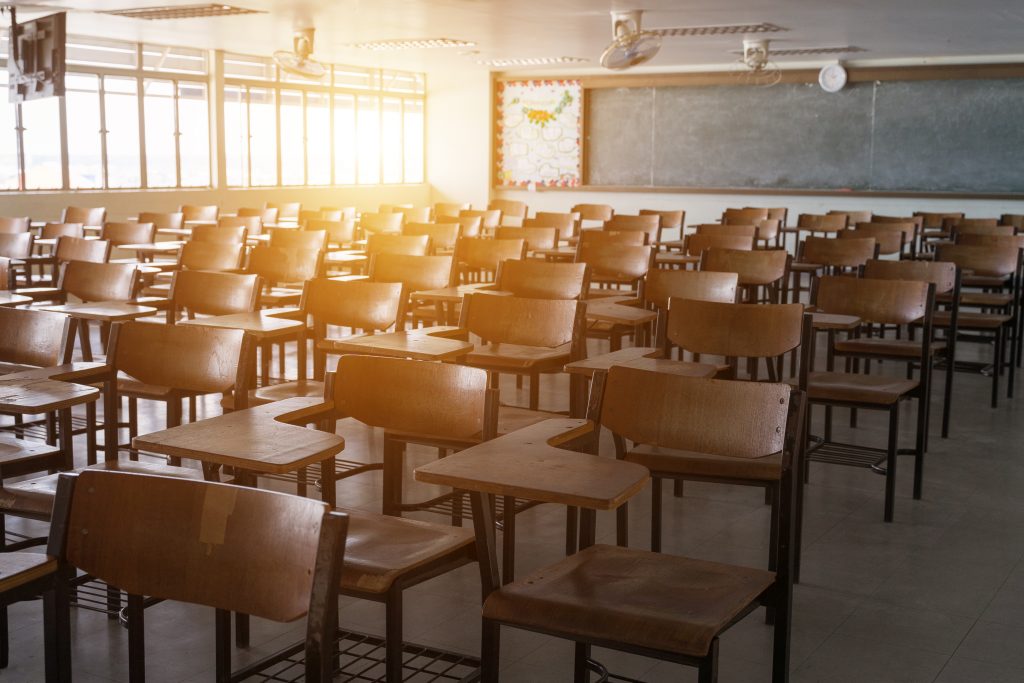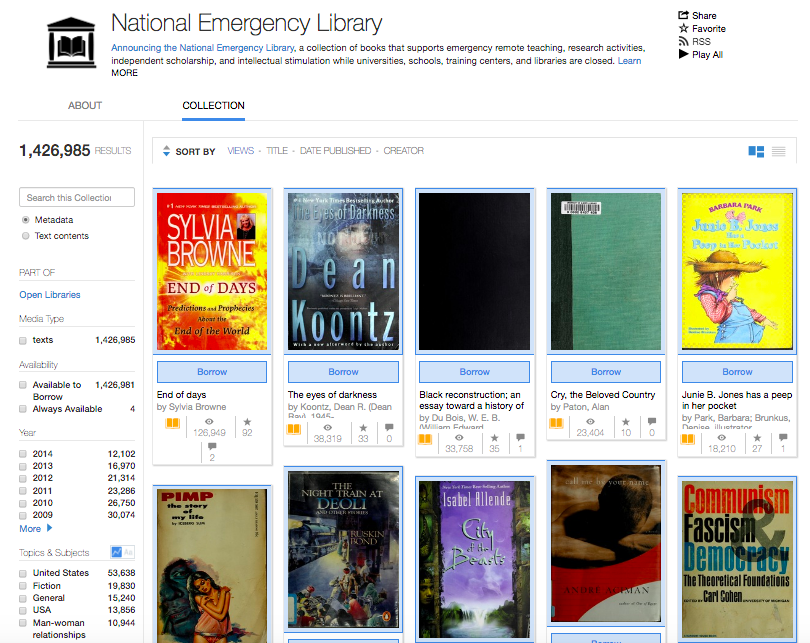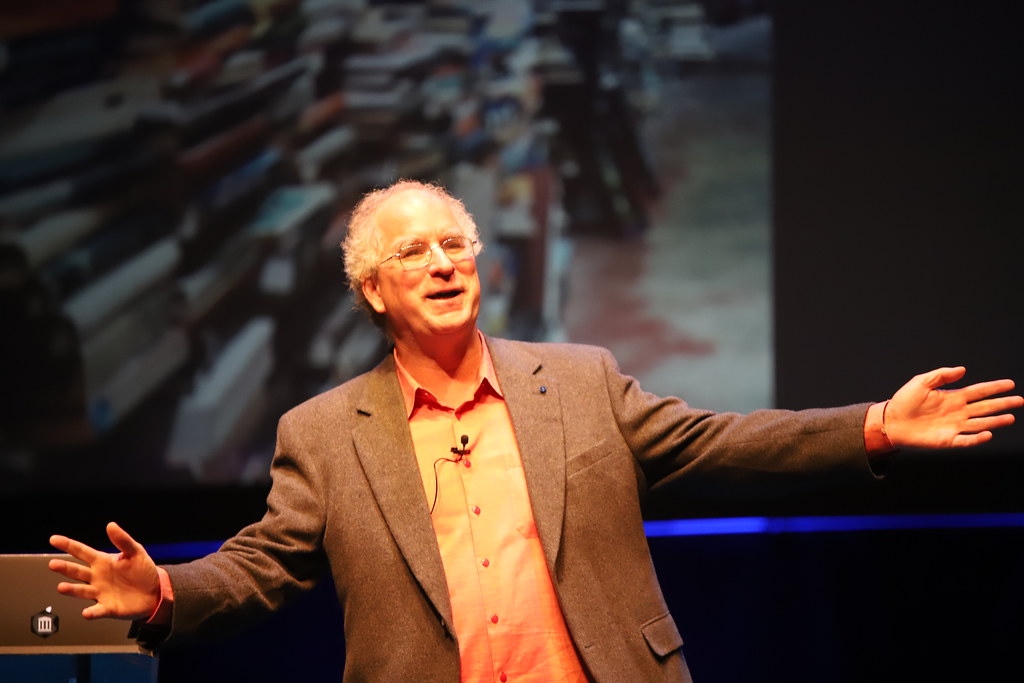
Forty years ago as a freshman, I pulled my first book off the shelves of Hayden Library at MIT. This month, every MIT undergraduate departed from campus in an attempt to contain COVID-19, leaving behind the vast resources of that library. Ready or not, we are all being thrust into an enormous experiment in online learning. One that can have positive and permanent outcomes, if we handle it right.
With schools closing from Changshu to Cambridge, suddenly students are cut off from the physical resources they rely on: the teachers, the classrooms and libraries that are the backbone of learning. And in this flux, those in marginalized communities—from rural areas without broadband or schools with few online books—are even more profoundly challenged. The Economist reports that in the United states, “7 million school-age children cannot access the internet at home.”
“If this is just a prolonged pause in our education and economy, without the benefits of learning and adapting, one of the most profound impacts of COVID-19 may be…a “quiet brain drain.” It will be time our children never get back.”
But here’s the good news: we know how to do this, to impart knowledge at scale over the Internet. Online courses, online libraries and broadband all exist—but we need to expand and upgrade them to meet the needs of the close to one billion learners around the world whose classrooms have been shuttered.
24 years ago, I founded the Internet Archive as a nonprofit digital library serving more than a million learners every day. Today, the Internet Archive is working with hundreds of public, school and university libraries to digitize their core collections and make them freely available over the Internet. Even as MIT was sending students home, we were working with MIT Libraries to see how many of their books we have already digitized. In 24 hours, we were able to hand them back 166,000 digitized books to lend online through their catalogue and via archive.org. This week, the Internet Archive created a National Emergency Library of 1.4 million digitized books to serve the needs of students, educators and learners who can now access them from home.

Think of this as a huge experiment. In one big push, we can improve online learning and its infrastructure in a way that may otherwise have taken years. This crisis encourages universities to be bold, to make investments that ultimately may mean many more students can benefit. Perhaps 500 undergraduates can fill a hall at MIT, but how many millions can take an online MIT course, once the books, materials and lessons are online?
China is a few weeks ahead of the United States when it comes to experimenting with online learning. In January, my son, Caslon, was teaching English to 4th graders in Changshu. Now he is teaching them from San Francisco, with recorded lessons and online interaction. Next month, his school in China is poised to reopen, but I suspect it will be forever changed.
If this is just a prolonged pause in our education and economy, without the benefits of learning and adapting, one of the most profound impacts of COVID-19 may be what Dr. Kate Tairyan, Chief Medical Officer of the online college NextGenU.org, calls a “quiet brain drain.” It will be time our children never get back.
But we have the opportunity to harness American ingenuity to build a stronger, more robust educational system—by leveraging the Internet, new technologies, and our investments in digitizing books at scale into something that democratizes learning for a generation to come.

Brewster Kahle is the founder and Digital Librarian of the Internet Archive. A passionate advocate for public Internet access and a successful entrepreneur, he has spent his career intent on a singular focus: providing Universal Access to All Knowledge. Kahle graduated from the Massachusetts Institute of Technology, where he studied artificial intelligence.
I would be a lot happier about this if you provided some way to block inappropriate content. I have an internet filtering router and you are totally bypassing. I know to ignore videos I don’t want to see, but my kids don’t. If I can’t figure out how to block this, they won’t be allowed to use this site. As an art major, I’ve always loved that you had many old art books available, and have thought about supporting for that reason, but if you show no interest in providing a safe and appropriate online environment for children I can’t support you!
I have supported the archive for years, both monetarily and uploading live concerts. While I think the idea of the library is good in general, proceeding to ignore existing copyrights to do so and take away income from living authors who need that money to survive at this time is troubling and I am reconsidering my support if it continues.
Brigham Young University-Idaho, in Rexburg, Idaho for the last few years has implemented a large online college degree program. There is the Pathway Connect program, which is a low-cost, flexible way to start on a path to a college degree. There are about 26,000 students in this program. There is also a program with thirty-seven degrees and certificates, with about 18,000 students enrolled. These progams are international. They have developed a very good training proram for those who teach the students in these online programs. BYU-Idaho is very willing to share their experiences and learnings with other colleges and universities. Please go to pathway.lds.org for more information.
What a wonderful way to support-promote lifetime learners.
I think we are now poised to a new era of online.: Schools and universities are going online along with classes, libraries and labs; even the societies of business, artists, and pundits are going online. In future, will there still be “school out”?
When I was in sixth grade or so, about 1957, a classmate was stricken with a serious illness (I don’t remember what) and was out of school for about five months. He lived within sight of the school so a few private donors hooked up an intercom system so he could participate. While this system was about one step up and two steps sideways from the tin can telephone, it served its purpose and my classmate graduated with the rest of the class. If it worked 63 years ago, it can work now.
No doubt online teaching techniques and facilities have proven as an excellent source of studies. Online teaching techniques have many advantages;
1- Minimum requirement of buildings
2- Minimized transportation requirements.
3- Minimized expenditures in the sense of furniture, staff, utility bills, etc.
4- Consumptions of papers for examination and other related costs will also be reduced.
5- Movement of staff and students will be reduced.
Indirectly we will be gaining a lot of other benefits like;
A- Low consumption of fuels.
B- Low levels of fog and smog.
C- Fresh and more oxiginated air.
D- More Clean n Green Environment.
E- Ozone layer will be gaining good times for it’s automatic repairs.
F- Last but not least people will be giving more time to their kids and families.
I wonder if this crisis will lead to parents exerting pressure on the educational authorities in the US to make it easier for them to homeschool their children?
(As an aside: Am I the only one who sees those perfectly aligned rows of wooden desks and thinks of the 19th century?)